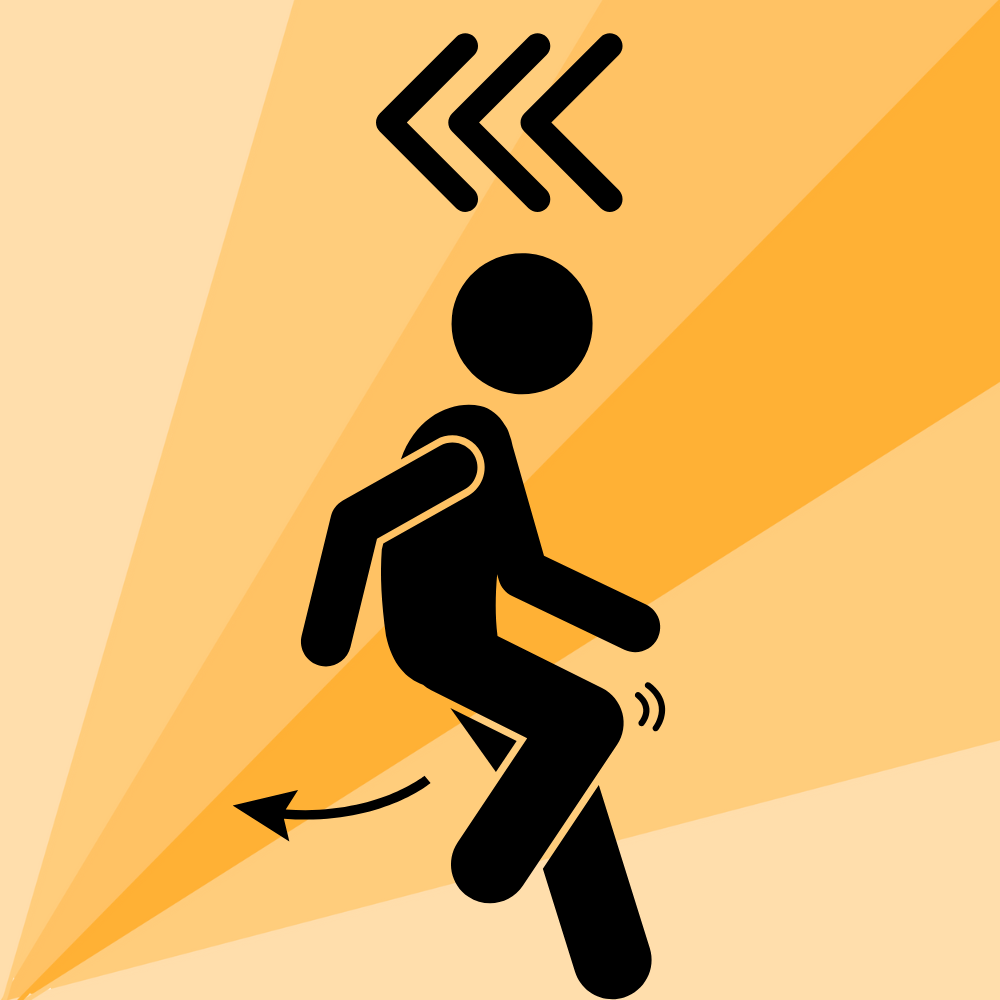Backwards
Definition
Backwards is an adverb and an adjective. As an adverb, it indicates movement or direction toward the back or opposite direction. It can also imply regression or a reverse order. As an adjective, it describes a tendency to move or develop in the opposite direction or to lag behind in development.
Parts of Speech
- Adverb
- Adjective
Pronunciation
American and British English
- IPA Pronunciation: /ˈbækwərdz/
- Respelling: BAK-wurdz
Etymology
The word "backwards" originates from the Middle English "bakward," which combines "back" with the suffix "-ward" to indicate direction. The term developed in the 14th century to denote movement in a reverse or opposite direction.
Derivatives
- Backwardness (noun)
- Backward (adjective)
- Backwards-compatible (adjective)
- Backwards-looking (adjective)
- Backwardsness (noun, informal)
Synonyms
- In reverse
- Rearward
- Reversely
Antonyms
- Forward
- Ahead
- Progressive
Usage
The term "backwards" is often used to describe motion or positioning toward a previous point or in the opposite direction. For example, "He fell backwards into the pool," or "Thinking backwards can help analyze past events."
Related Terms
- Reverse: To move or operate in the opposite direction.
- Regress: To move backward, particularly in development or progress.
- Retreat: To withdraw or move back.
Detailed Definitions
Adverb
- Toward the back or in reverse: Indicates movement in the opposite direction.
- Example: "He walked backwards to avoid tripping over obstacles."
- In a manner that hinders progress or development: Suggests regressing or moving away from progress.
- Example: "Policies that prioritize the past may seem like steps backwards."
Adjective
- Directed or moving to the rear or opposite direction: Describes something oriented toward the back.
- Example: "The backwards steps allowed him to maintain balance."
- Lagging in development or progress: Used to describe ideas, societies, or practices considered out of date or regressive.
- Example: "The region struggled with backwards technology and infrastructure."
backwards



Mandarin (🇨🇳)
- 倒 (meaning: reverse, opposite)
- IPA Pronunciation: /dǎo/
- Respelling: dao3
- 反向 (meaning: in the opposite direction)
- IPA Pronunciation: /fǎn xiàng/
- Respelling: fan3 xiang4
Hindi (🇮🇳)
- उल्टा (meaning: reverse, opposite)
- IPA Pronunciation: /ʊlʈaː/
- Respelling: ulta
- पीछे (meaning: towards the back, rearward)
- IPA Pronunciation: /piːtʃʰeː/
- Respelling: peechhe
Spanish (🇪🇸)
- hacia atrás (meaning: rearward, backward)
- IPA Pronunciation: /ˈasja aˈtras/
- Respelling: asia a-tras
- al revés (meaning: in reverse, opposite way)
- IPA Pronunciation: /al reˈβes/
- Respelling: al re-ves
French (🇫🇷)
- en arrière (meaning: rearward, backward)
- IPA Pronunciation: /ɑ̃n a.ʁjɛʁ/
- Respelling: an a-ryehr
- à l'envers (meaning: upside-down, in reverse)
- IPA Pronunciation: /a lɑ̃ˈvɛʁ/
- Respelling: a lan-vaire
Modern Standard Arabic (🇸🇦)
- إلى الخلف (meaning: rearward, backward)
- IPA Pronunciation: /ʔilaː alˈxʊlf/
- Respelling: ila al-khulf
- عكسياً (meaning: in reverse, opposite way)
- IPA Pronunciation: /ʕaksːijan/
- Respelling: 'aksyan
Bengali (🇧🇩)
- পেছনে (meaning: rearward, backward)
- IPA Pronunciation: /pɛtʃʰone/
- Respelling: pechhone
- উল্টো (meaning: in reverse, upside-down)
- IPA Pronunciation: /ulto/
- Respelling: ulto
Russian (🇷🇺)
- назад (meaning: rearward, backward)
- IPA Pronunciation: /naˈzat/
- Respelling: nazad
- в обратном порядке (meaning: in reverse order)
- IPA Pronunciation: /v ɐˈbratnəm pɐˈrʲatkʲɪ/
- Respelling: v obratnom poryadke
Portuguese (🇵🇹)
- para trás (meaning: rearward, backward)
- IPA Pronunciation: /ˈpaɾɐ ˈtɾaʃ/
- Respelling: para tras
- ao contrário (meaning: the opposite way, in reverse)
- IPA Pronunciation: /aw kõˈtɾa.ɾju/
- Respelling: ao contrario
Indonesian (🇮🇩)
- mundur (meaning: rearward, backward)
- IPA Pronunciation: /mundur/
- Respelling: mundur
- terbalik (meaning: upside-down, in reverse)
- IPA Pronunciation: /tərˈbalik/
- Respelling: terbalik
German (🇩🇪)
- rückwärts (meaning: rearward, backward)
- IPA Pronunciation: /ˈʁʏk.vɛʁts/
- Respelling: rückwärts
- umgekehrt (meaning: reversed, turned around)
- IPA Pronunciation: /ʊmˈɡeː.kɛʁt/
- Respelling: umgekehrt
Japanese (🇯🇵)
- 後ろ向きに (meaning: facing backward)
- IPA Pronunciation: /uːsiro muki ni/
- Respelling: ushiro muki ni
- 逆さ (meaning: upside-down)
- IPA Pronunciation: /sakasa/
- Respelling: sakasa
Vietnamese (🇻🇳)
- ngược (meaning: rearward, backward)
- IPA Pronunciation: /ŋwə̌k̚˦ˀ˥/
- Respelling: nguoc
- đảo ngược (meaning: in reverse)
- IPA Pronunciation: /ʔɗa᷉ːw ŋwə̌k̚˦ˀ˥/
- Respelling: dao nguoc
Korean (🇰🇷)
- 뒤로 (meaning: rearward, backward)
- IPA Pronunciation: /twi.ɾo/
- Respelling: dwiro
- 반대로 (meaning: the opposite way)
- IPA Pronunciation: /ban.dɛ.ɾo/
- Respelling: bandae-ro
Turkish (🇹🇷)
- geriye (meaning: rearward, backward)
- IPA Pronunciation: /ɟeˈɾije/
- Respelling: geriye
- tersine (meaning: in reverse, the opposite way)
- IPA Pronunciation: /teɾˈsine/
- Respelling: tersine
Urdu (🇵🇰)
- پیچھے (meaning: rearward, backward)
- IPA Pronunciation: /piːtʃʰeː/
- Respelling: peechhe
- الٹ (meaning: upside-down, in reverse)
- IPA Pronunciation: /ʊlt/
- Respelling: ult





